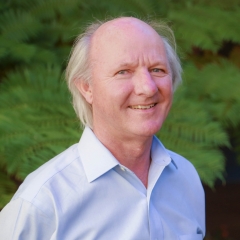
Professor Emeritus
Mellichamp Chair in Process Systems Engineering - NAE
Contact
Santa Barbara, CA 93106-5080
ChemE Research Areas:
Honors:
2022 Elected Fellow of the American Academy of Arts and Sciences
2021 KAIST Global Distinguished Lectures in Chemical Engineering
2021 P.V. Danckwerts Memorial Lecture to the EFCE
2020 John M. Prausnitz AIChE Institute Lecture
2020 Covestro-Bayer Lecture in Process Systems Engineering, Carnegie Mellon University
2015 Elected to the National Academy of Engineering
2013 Donald L. Katz Lectures, Department of Chemical Engineering, University of Michigan
2013 Kelly Lectures, Department of Chemical Engineering, Purdue University
2012 E.V. Murphree Award for Industrial & Engineering Chemistry, American Chemical Society
2011 Stanley Katz Memorial Lecture, Department of Chemical Engineering, City College of the City University of New York
2011 Editors’ Choice article selected by the editors of the Journal of Chemical Physics for, “Bubbles, Crystals, and Laser-Induced Nucleation,” J. Chem. Phys., 134, 171102/1-4 (2011) by B. Knott, J.L. LaRue, A. Wodtke, M.F. Doherty and B. Peters
2010 The Roger Sargent Lecture, Department of Chemical Engineering, Imperial College, London
2009 Distinguished Researcher Lecture, Carnegie Mellon University, Imperial College, London
2008 Centennial Lecture, Imperial College London
2008 Michael Abbott Memorial Lecture, Rensselaer Polytechnic Institute
2008 AstraZenica Lecture, University of Manchester, UK
2008 Named one of the “One Hundred Chemical Engineers of the Modern Era” (post 1945) by the American Institute of Chemical Engineers
2007 Ruth-Larson Lecture, Iowa State University
2006 Botsaris Lecture (inaugural lecture), Tufts University
2006 Dow-Sharma Lectures, University Institute of Chemical Technology, Bombay, India
2004 Clarence G. Gerhold Award, Separations Division, AIChE
2004 Excellence in Process Development Research Award, Process Development Division, AIChE (awarded jointly with M.F. Malone)
2004 Alpha Chi Sigma Award for Chemical Engineering Research, AIChE
2001 Best Paper of the Year Award, 2001, Computers and Chemical Engineering, for “A Systematic Method for Reaction Invariants and Mole Balances for Computers Chem. Engng., 25, 1199-1217
1997 Eastman Lecturer, University of Tennessee
1996 Merck, Sharp and Dohme Lectures, University of Puerto Rico
1996 Computing in Chemical Engineering Award, CAST Division of AIChE (awarded jointly with M. F. Malone)
1993 Best Paper of the Year Award, 1993, Computers and Chemical Engineering, for "Computing Azeotropes in Multicomponent Mixtures," by Z.T. Fidkowski, M.F. Malone and M.F. Doherty, Computers Chem. Engng., 17, 1141-1155
Professional Service:
Steering Committee, Association of Crystallization Technology (2003-present)
Editor, Distillation Chapter in Perry’s Chemical Engineers’ Handbook (2003-present)
Editorial Board, Wiley Series in Chemical and Biological Engineering (2004-2011)
Advisory Board, Chemical & Biological Engng Department, Tufts University (2004-2007)
Scientific Advisory Board of the Max Planck Institute for Dynamics of Complex Technical Systems, Magdeburg, Germany (2008–present)
Associate Editor, Annual Review of Chemical and Biomolecular Engineering (2008-present)
Board of Consulting Editors, AIChE Journal (2008–present)
Conference Chair, Engineering Conferences International-Separations Technology VIII: Sustainable Separation Technology for Energy and Environmental Challenges, Hawaii (2010)
Research Description:
Doherty Group website - More detailed information about the research of Professor Doherty and his lab.
- Conceptual design of chemical process systems. Combining reactions and separations, crystallization of organic materials, and systems with complex chemistries. Applications: specialty chemical and pharmaceuticals.
- Separation with chemical reaction. Potential to create quantum improvements in process technology through the enhancement of reactions by separation and by the improvement of separation by reaction. Developing new feasibility methods using geometric techniques such as residue curve maps, bifurcation analysis, and attainable regions. Applications: production of esters and ethers by reactive distillation, and antibiotics by reactive solvent extraction.
- Crystallization of organic materials. Study the effect of process design and operation on crystal quality for organic-solids processes. The key measures of quality that we are interested in are, enantiomorph (for chiral mixtures), polymorph, and crystal shape. Developing new methods to account for solution effects, with the ultimate goal of using these new methods to account for crystal shape, as well as enantiomorph and polymorph selection in the conceptual design of solids processes.
Education:
BS: Imperial College London
PhD: Trinity College, University of Cambridge



